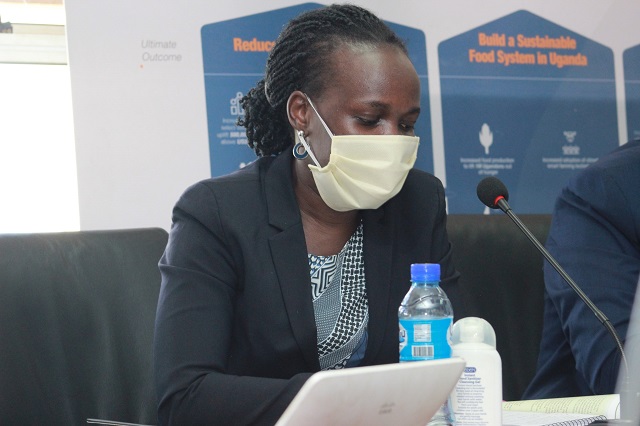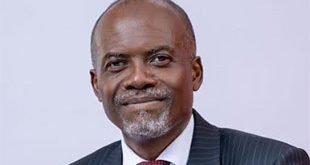
More funding, capitalisation of the bank coupled with increase in loan disbursements supported the growth in 2020
Kampala, Uganda | JULIUS BUSINGE | Uganda Development Bank Limited has realised a profit after tax for the year 2020 of Shs22bn, representing a 118% growth from Shs10.4bn reported in 2019 amidst the challenging operating environment.
According to its financial results released recently, interest and similar income grew by 74% in 2020 mainly as a result of a 54% growth in loans and advances.
Interest expense and similar charges increased by 34% to Shs4.2bn from Shs3.1bn in 2019 as a result of 77% increase in borrowings arising from new lines of credit of Shs67bn secured by the bank in 2020 compared to Shs49bn drawn down in 2019.
The Bank’s net interest income increased by 74% to Shs67.9bn from Shs38.9bn in 2019.
Its gross loans and advances increased by Shs177bn representing a 53% growth during the year compared to a growth of Shs45bn (15%) in 2019.
The Bank disbursed Shs242.2bn to projects in 2020 compared to Shs183.9bn for the previous year, representing a 31.7% growth in disbursements.
The growth in the funding base of the Bank, the capital and interest repayments and the internal profits continued to support the growth in the loans and advances.
Meanwhile, its total assets increased by 124% to Shs486bn in 2019 on the back of increase in the government of Uganda capital contribution as well as draw down of lines of credit.
Deposits held in banks are fully committed to projects that are implemented in a phased manner, according to the Bank’s management.
As at December 31, 2020, the value of projects that were appraised and approved but not yet disbursed due to the phased disbursement/financing structure of projects was Shs351bn; the bulk of this money will be disbursed in the year 2021.
Growth was achieved as a result of continued growth in funding and capitalisation of the bank coupled with increase in loan disbursements to development projects and revenue from earning assets.
The government of Uganda continued to capitalise the bank throughout 2020 with additional capital of Shs510bn injected into the bank compared to Shs87.7bn in 2019.
This capitalisation gave rise to a 277% increase in total capital contribution in 2020 to Shs693bn from Shs183bn in 2019.
The capital contributions remain key in facilitating the growth in the bank’s loan portfolio.
Management said, the bulk of the capital contribution was utilised to finance projects that mitigate the effects of COVID-19 on the economy.
Executives said, the financial stability remains a priority for the bank in its efforts to drive social economic development in the country.
The bank is also digitising its operations to drive productivity and increase efficiency gains, fast track the implementation of its funding and capitalisation strategy and seek alternative ways of raising financing to invest in small, medium and large scale projects with high potential for development impact on the economy.
In addition, the management said credit risk management including resultant expected credit losses on the Bank’s financial assets will continue to be key in ensuring financial sustainability.
Other activities
In 2020, UDBL together with Ministry of Finance co-hosted and organized the first World Development Finance Forum (WDFF), a high-level global forum focused on delivering tangible and breakthrough results to the national financial institutions and their countries.
This first WDFF, which attracted delegates from 42 countries aimed at finding solutions to the challenges and opportunities emerging from the coronavirus crisis.
There was also need for international consensus on the Post-COVID-19 agenda for the national financial intermediaries and the countries and territories they serve.
The forum among other things saw the delegates sign a resolution, calling for action to achieve both national and global sustainable development goals and economic revival through enhancing the quality and amount of funds by boosting domestic resource mobilization and by creating collective strategies for pooling international financial resources.
The forum revitalized the role of national development finance institutions and other financial sector players and intensified efforts to embed sustainability of the financial sector to create strong and resilient institutions.
Going ahead, the management said, UDBL will continue to be part of the international consortium and co-lead the efforts of modernising National Development Finance so it can effectively address the changing needs of economies.
“Building on our goal to have sustainable high impact, the Bank’s priorities in the coming period will include amongst other strategies to draw in underserved communities,” the financial statements reads part.
Specific emphasis is to create jobs through an innovative SME development and financing program, youth and women financing interventions.
The Bank will also widen the net cast by appropriate technology and its partnerships to better serve projects across the country, promote value addition in agriculture especially in rural production zones, and support its teams internally to deliver quality services.
****
 The Independent Uganda: You get the Truth we Pay the Price
The Independent Uganda: You get the Truth we Pay the Price



